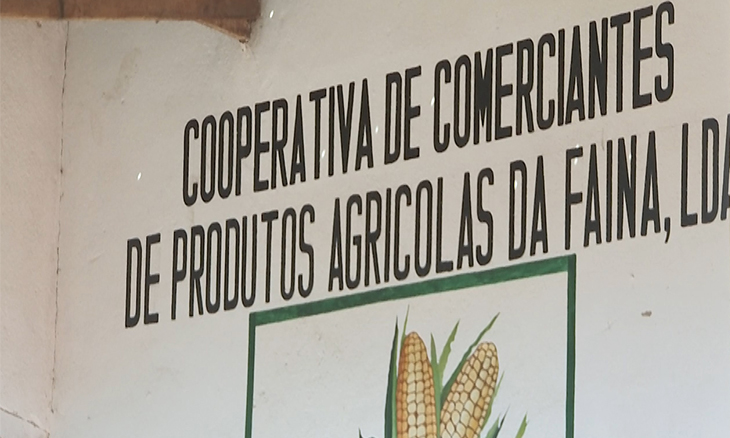Mozambique: Government imposes new restrictions on alcoholic drinks - AIM report
Mozambique: Cooperatives are taxed as commercial companies

Image: O País
The cooperative movement is gaining ground again in Mozambique, but its development is hindered by the absence of regulation of the law on cooperatives and the absence of a special tax regime.
The Faina Agricultural Products Traders Cooperative, on the outskirts of the city of Nampula, has only been in legal existence for one year, but is already excelling in the agribusiness sector.
“Last month alone, the cooperative managed to transport an average of 35,000 tons. Our main focus is peanut, bean and a little cashew nut,” explains Juvêncio Silvestre Alexandre, one of the members of the cooperative.
In total, the cooperative has 65 members. Members purchase products collectively, resell them in the south of the country and, in the end, share the profits, thus guaranteeing the essence of the cooperative, which is to benefit the social and economic development of members.
“We have some rates that are 1.5%. Then we sell during the year, we take stock of what we earn, I’m referring to the profits, and we divide it equally,” explains Alexandre.
In the province of Nampula, the cooperative movement is once again gaining expression, for example the new cashew nut processing factory in Nampula district, which acquires part of the raw material from cashew nut production cooperatives.
“We have a good relationship, it’s already a help. This year, the fact that we reached 1,250 tons was also with the help of producer cooperatives, which helped us with some raw materials. We have an agreement with them on quality and performance,” said Américo Matos, director of the factory in question.
Mozambique is one of the countries in the world that adopted cooperatives as a way of guaranteeing economic and social development, through improving the living conditions of members, and then of the community in which they are located. The story comes from colonial times and started coming to prominence in the first Mozambican republic that emerged in 1975.
But cooperatives face a series of challenges, despite the modern law approved in 2009.
“It has been approximately 14 years since this law was approved, but there is a challenge that is also a constraint, because the law was approved and the legislator provided 180 days, after the approval of the law, for the approval of the regulation of this law, to facilitate the interpretation of the law itself. After all this time, we still do not have the regulation of the law on cooperatives, and we do not have a tax regime for companies of this cooperative type, which contributes negatively to the implementation of the new general law on cooperatives,” warns Natalino José Banete from the Mozambican Association for the Promotion of Modern Cooperatives.
Law No. 23/2009 of 8 September, the general law on cooperatives, recognizes that cooperatives enjoy special treatment as they not only aim at profit, but also at the social development of members. However, in concrete terms, cooperatives are taxed as commercial companies.
Article 94 of the law on cooperatives states that “The tax and financial benefits of cooperatives are the subject of specific legislation”, and, as there is no legislation yet, cooperatives are taxed as if they were commercial companies.
Mozambique has more than 10,000 cooperatives, bringing together around 1.5 million members. Seventy-five percent of cooperatives are in the agribusiness sector.
International Day of Cooperatives is celebrated every year on the first Saturday in July.
This year on July 6, cooperatives around the world celebrated the International Day of Cooperatives with the theme “Cooperatives Building a Better Future for All”. Cooperatives had the opportunity to showcase their current and historical contributions to building a sustainable future, accelerating efforts to implement the Sustainable Development Goals (SDG) by 2030. The theme aligns well with the objectives of the upcoming UN Summit of the Future whose theme is “Multilateral solutions for a better tomorrow”.
For the 2024 #CoopsDay, cooperatives were invited to showcase their high standards for inclusive and sustainable growth, and service as stewards for protecting the environment and fighting climate change. Through democratic governance and shared ownership, cooperatives set an example for peace and stability, bringing people from diverse backgrounds together on equal terms, and fostering understanding and respect.
The 2023 UN Secretary-General Report on Cooperatives in Social Development acknowledged that cooperatives have a track record of promoting the economic and social development of all people including marginalized groups. This day will build the momentum towards the 2025 International Year of Cooperatives, which was declared by the UN last year.












Leave a Reply
Be the First to Comment!
You must be logged in to post a comment.
You must be logged in to post a comment.